In this war against the virus who is the real enemy? Government, police or is it us?
Whether it’s the number of deaths, the amount of PPE or the rates of testing, Johnson is about as sloppy with the facts as he was over Brexit. Robert Fisk says we’ve had enough careless talk – the people want the truth

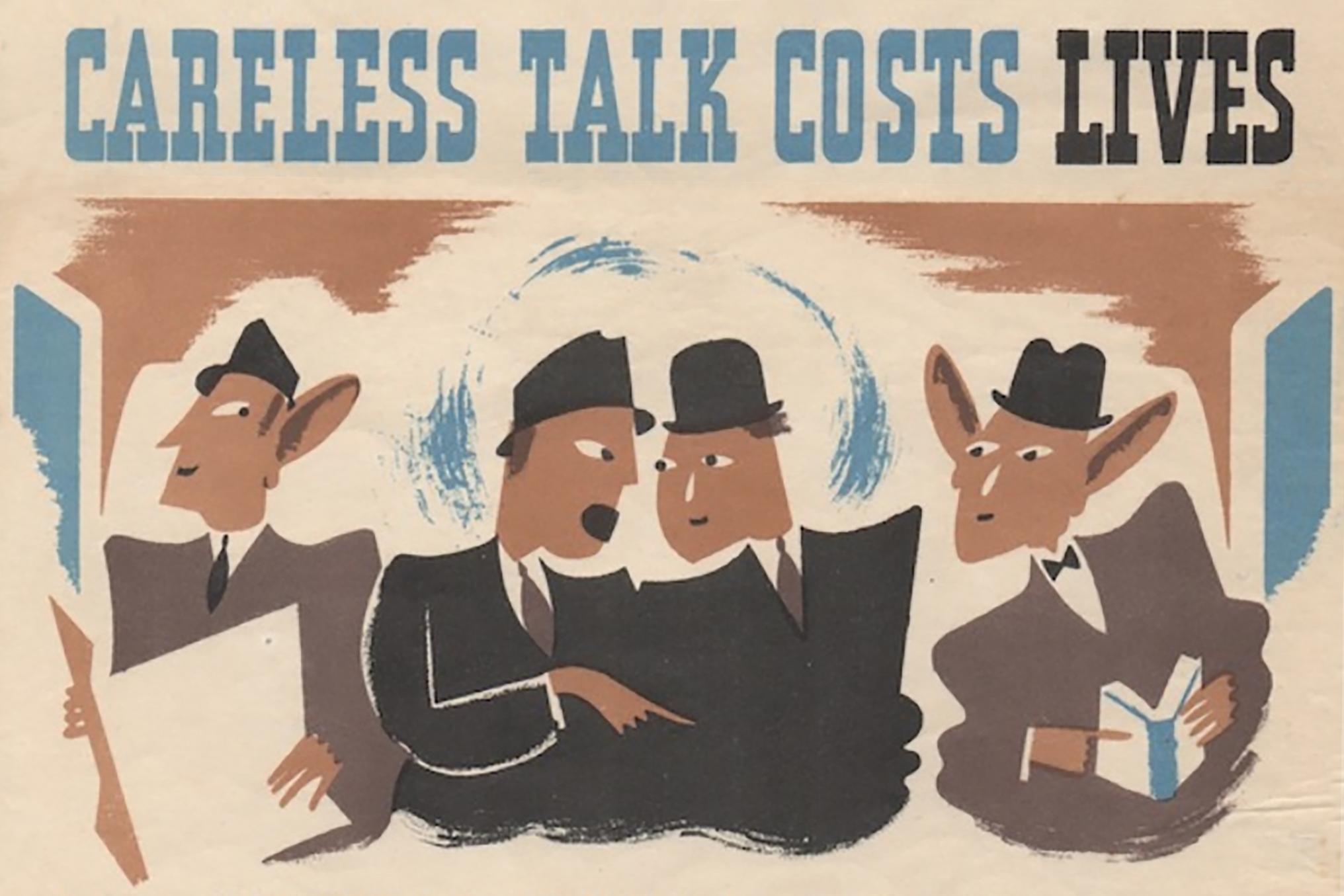
It really is time we set The Boris Johnson Story to one side. I wish no one’s demise – and am glad that Johnson, like thousands of other people around the world, came back from the valley of the shadow of death. But it really is a bit much to hear him thank the NHS for his life when his own government cannot provide them with the protection they need to treat the sick. Or even provide his own people with the truth about just how many of them have died or are dying or will die.
Even if we accept the difference between Covid-19 hospital deaths and Covid-19 nursing home deaths and Covid-19 deaths at home – and even if we are prepared to believe the intolerable difficulties of collating these casualty tolls – why didn’t Boris Johnson’s spokesmen and spokeswomen (or Johnson himself before he was wounded in action) point out at the very start that the daily death toll in UK hospitals was probably a gross underestimation of total British casualties? Maybe by about 100 per cent.
I think the cabinet just thought they could get away with fooling us that hospital coronavirus deaths represented all deaths – until someone spotted that they didn’t, at which point the rest (or some of the rest) of the dead got untidily tacked on to the original figure with insufferable excuses as to why it might not be exact.
So please, let’s have fewer details of Johnson’s ordeal with death – and more details about just how many of his fellow citizens are meeting that fate. Careless Talk Costs Lives, the posters used to say in the Second World War, the event which all of us are supposed to remember, though most of us cannot conceivably do so – unless we are over 80 and not yet felled by Covid-19. But careless talk about how many lives are lost appears to be a feature of Boris Johnson’s cabinet. Indeed, whether it’s the number of deaths or the number of protection kits or the number of available tests or the number of positive tests, Johnson and his playmates are about as sloppy with the facts as they were over Brexit.
We’re not dealing here with the mental problems of the man in the White House. The British government’s situation is different. It’s not presidential madness but a history of prime ministerial falsity and deception which undermines the Boris Johnson cabinet and its current lamentable performance. The problem here, I’m sure, is that, unconsciously or otherwise, this Tory government is still using the same system of lies – or just factual laziness – which they got away with over Brexit, and are now trying to re-utilise this in the battle against Covid-19. The simpleminded fibs they are now employing in their coronavirus statistics might have been forgivable when they spoke of the need to leave Europe – because we all know politicians lie – but when these same untruths are deployed to the detriment of a people facing death, something very different is taking place, something quite unforgivable.
Perhaps we really should frame our thoughts around that one event which so obsesses these Brexiteers, who are now in battle with reality rather than EU fantasy.
How many British citizens have died of coronavirus these past few weeks? More than 14,000? Or is it 24,000? Or much, much higher? Most people – not just the Brits – can accept great loss, however inconceivable in better times. I suspect that one reason why political leaders dredge through the riverbed of the Second World War is because they suspect that the men and women of that age – of which, as I say (with the exception of then Princess Elizabeth), they have no memory – were made of sterner stuff. They didn’t need governments, not even Churchill, to tell them to fight.
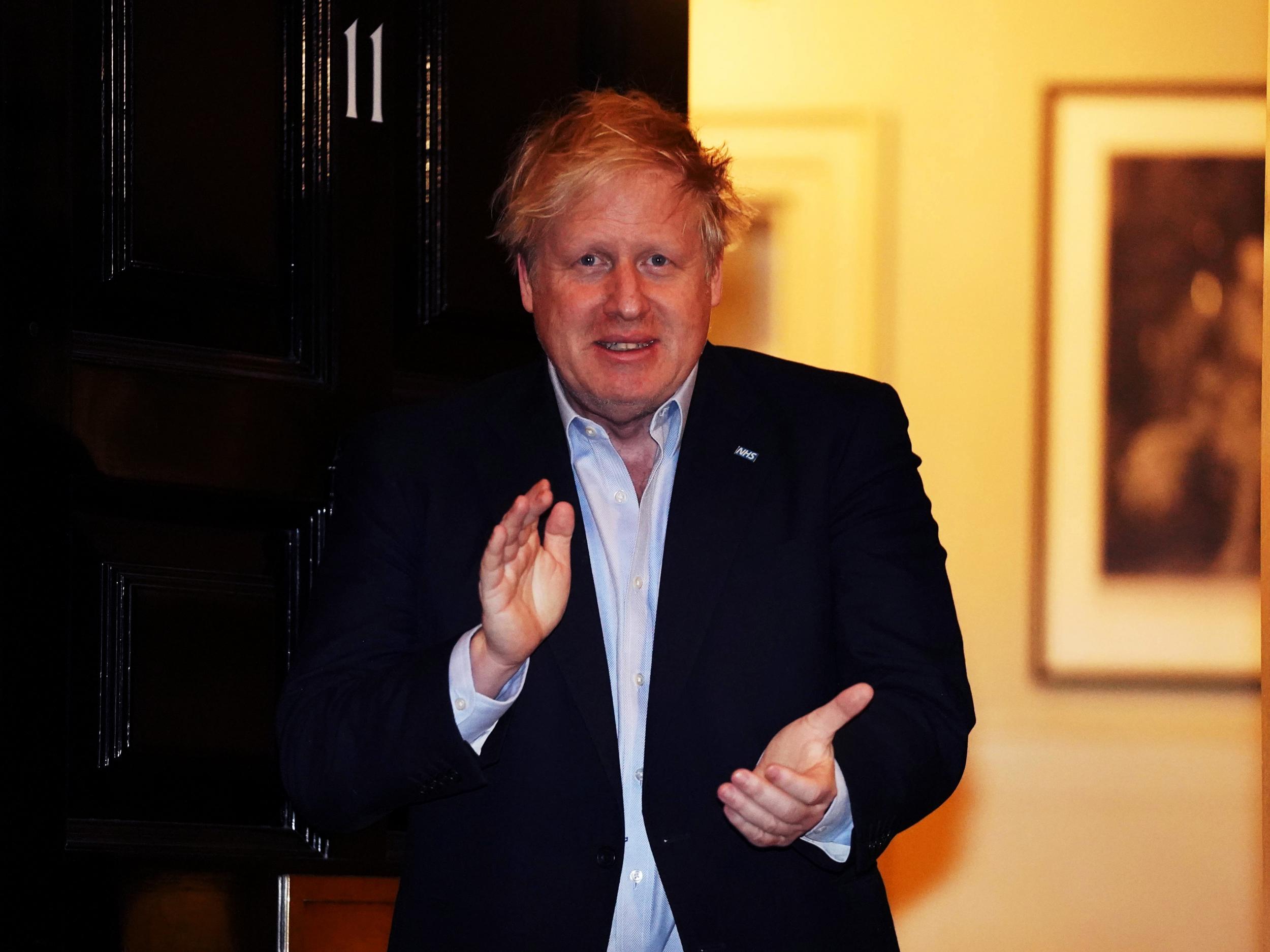
Many people today, I fear, believe – especially in our “civilised” West – that they will never die. Our laptops and Skype and Google and WhatsApp and Facebook have made death remote, unthinkable amid virtual events, something which can be avoided with a combination of entertainment and public relations, Netflix and cabinet encouragement. But our ancestors did not have these delusions. It is Thomas Hardy who in Tess of the D’Urbervilles mischievously reminded us that every year we pass the anniversary of our death. This was seen by his original readers not as some literary vanity but as a self-evident truth placed in an imaginative context.
The remnants of that society – those who believe in death as a fact of life – are the doctors and nurses who now speak nightly of their sorrow and sadness. Theirs is not the chicory-flavoured sympathy for the families who were, in Johnson’s repulsive expression, “going to lose their loved ones before their time”. The medical staff live with death and speak of death because they live under its shadow. That’s what being on a ‘front line’ really means.
Our laptops and Skype and Google and WhatsApp and Facebook have made death remote, unthinkable amid virtual events, something which can be avoided with a combination of entertainment and public relations, Netflix and cabinet encouragement
But for sheer prevarication and unpreparedness – let us return to the Second World War if we must – Boris Johnson has more in common with Chamberlain than Churchill, always postponing the inevitable, waving fake statistics like a piece of white paper at Heston airport, without even admitting that he has to face, using Chamberlain’s own words in 1939, “the awful arbitrament of war”. Partly because those days were long ago, before our own birth – including my own – it’s easy to mould history into present-day falsehoods. Historical films always used to claim that their fictions were “based on a true story”. Our leaders should say the same today.
Most of those who did live through the real war, and whom I’ve had the honour to meet and talk to over many decades – and my PhD was written about neutrality in the 1939-45 war – were ready for sacrifice because they believed it was necessary. Yes, they wanted to know that they were winning – but they would never have accepted the humiliation of being instructed by charlatans as to why they were making so terrible a sacrifice.
They believed – gullibly, you might say, but with good reason – what they heard on the BBC. The Nazis lied and falsified the facts. The BBC told the truth. “Six of our aircraft failed to return,” the BBC would report after an RAF raid on Germany. Or ‘10 of our aircraft’. Or 20. But listeners knew this was as close to the truth as you could get about Britain’s losses. Now compare that to the tomfoolery of the present government, whose statistics – of deaths, of tests, of PPE availability – are so woefully out of tune with reality that they have become mere numbers on a dishonest scorecard.
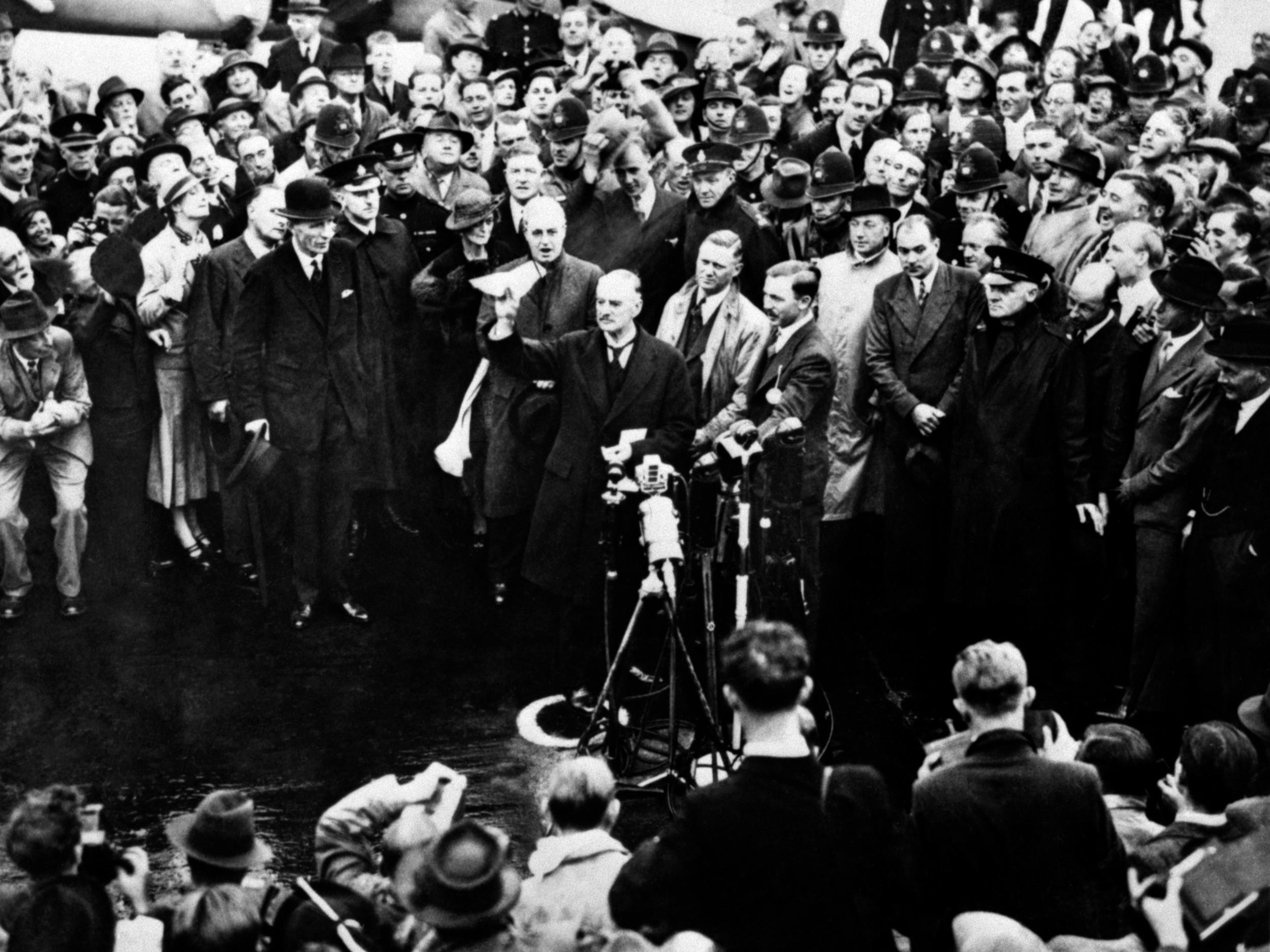
Indeed, one of the British cabinet’s most pressing problems is about the need to create myth. This worked quite well in the battle for Brexit. But how can they present the struggle against a virus as a struggle for freedom, a battle against a beatable foe? I’ve spent much of my life listening to political and military leaders explaining to their people how they are going to win “the war”. Real wars, that is, waged relentlessly against a dastardly, cowardly, vicious, cruel, wicked, rapacious, racist and evil enemy, a bunch of apocalyptic terrorists who wish to take over the world and end all human life as we know it.
We shall prevail, George W Bush told us. Sound familiar? General David Petraeus, anxious to explain how victory was inevitable even though poorly armed Iraqis were blowing up Americans, announced that “it’s going to get worse before it gets better”. Doesn’t that also sound familiar these days? In the old Green Zone in Baghdad, generals hiding behind their blast-proof concrete walls, would regularly tell us that there had been a “spike” – or an “uptick” – in violence. Again, sound familiar?
There’s no doubt the NHS are the heroes. But ask just who the enemy really is, and the answer is a lot more difficult to answer
These words were not, in their original use, employed by chance. They were chosen very carefully – far more assiduously than Johnson and his elves regurgitate these clichés – and they usually had a second meaning. A spike, for example, is something that rises steeply but, equally inevitably, it also subsides (the other side, so to speak, of the spike) – although in Iraq it never did. So Petraeus and his lads invented the “surge”, the unstoppable wall of water which would subdue the violence of the war. So far the surge has been mercifully absent from the Downing Street cliché-bin – but be sure it will arrive. For surge, in Petraeus-speak, means reinforcements. Or, I suppose, “flattening the curve”.
And who, in our case, will be the reinforcements? Why, our doctors and nurses, of course, returning from far-away countries to re-join the NHS in its frontline against… Well, what exactly? There’s no doubt the NHS are the heroes. But ask just who the enemy really is, and the answer is a lot more difficult to answer. From a scientific point of view, we know that the virus exists inside our bodies — and then goes on to infect our families, friends, neighbours, fellow citizens, the innocent, the elderly and, yes, sometimes the children as well. Quite an enemy. There’s no doubt it exists.
But how we characterise this particular antagonist is a very difficult undertaking. If we are going to follow Matt Hancock’s poppycock about the Blitz spirit, then we are all doing our bit, flying our Spitfire Mark 1s against the viral invaders. The problem, however, is that if we look in front of us and through the cockpit perspex of the attacking Luftwaffe Messerschmitt 109s, we will see our own faces. For we are flying against ourselves. We must conquer an enemy which is also us. We are the enemy we must destroy.
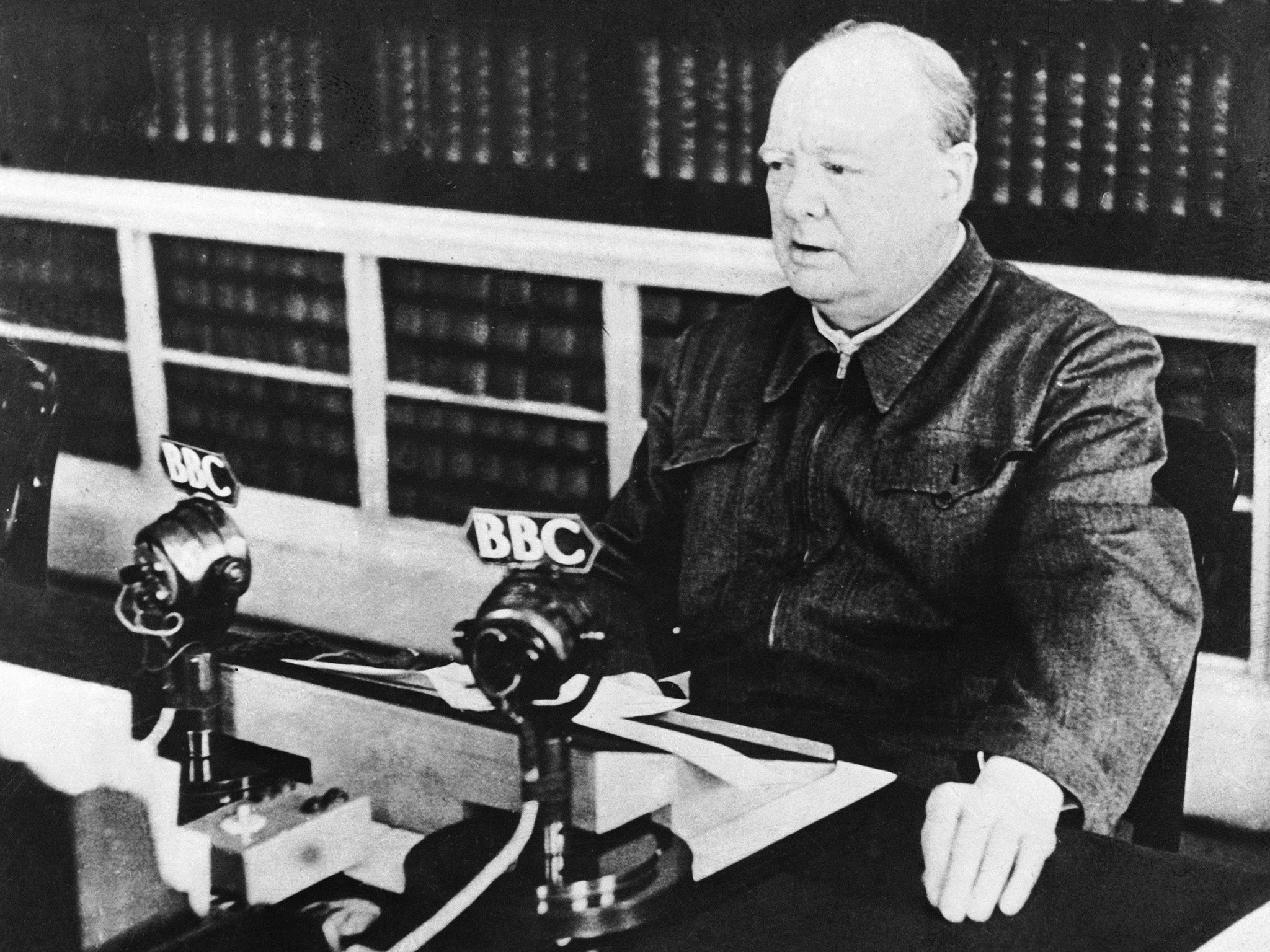
And this makes our political masters very uneasy. Because traditionally, all sacrifice must be accompanied by a feeling of worth, the idea that hardship – whether abiding by a Johnson curfew or, real heroism, the courage of doctors and nurses and ambulance drivers risking their lives – must be rewarded. And if our enemy does not have corporeal form – not without an electron microscope – then who will we choose to take its place? The government? The police? The raving loonies who spit at the cops or hold covert pizza parties, secretly drink themselves silly in shuttered pubs or take their doggies for a walk on the Derbyshire hills?
There are advantages for our masters in choosing the last of these options. We all love our neighbours, but we like getting our own back on them for past wrongs or slights. Which is why at least one UK police force, trying to stem the number of calls on the local health help number, opened a special line for neighbourhood snitches. Not unlike, I suppose, the Syrian village east of Aleppo, in whose newly abandoned Isis Islamic court I found hundreds of complaints, brought by villagers accusing their neighbours, even their relatives, of theft or un-Islamic behaviour, handed to Isis judges for a verdict. No, I’m not making any comparisons with Isis. But the villagers chose their moment of suppression to get their own back. They were indeed their own enemies: themselves.
It’s in the interest of governments and their servants, of course, to advertise those who would form an alliance with the invisible enemy against whom we must all struggle. Thus the crackpots who damage ambulances or threaten health workers are infinitely worse than the government ministers whose folly causes death on a potentially vast scale. Should not those who make common cause with a disease which kills the innocent meet their just deserts?
But we didn’t give the NHS the means to shield themselves from the enemy. And even after the invader started killing British citizens, the NHS still didn’t have enough protection
Remember how, in ‘The Third Man’, the American cowboy writer Holly Martins is persuaded to kill Harry Lime after being taken to a post-war Vienna hospital by Major Calloway? There he sees children dying of meningitis – which, by the way, is caused by viral or bacterial infection – because they have been treated with stolen penicillin, which Lime has been diluting and then selling on the black market. So if we become wearied by the proscriptions which governments believe we must undergo, then our fatigue can be redirected to our fellow citizens who endanger us or who ignore the very pestilence which we fear, or take advantage of it for their own gain.
Note how Hancock’s careful warning to withdraw the right to exercise because of “a very small minority” became a potential mass punishment for all. I remember this kind of threat at my own minor English public school: “Some boys have been smoking behind the cricket pavilion – if this happens again, all matches will be cancelled for three weeks…” Nottinghamshire police seemed ready to follow the same infantile threats.
Far worse; while our masters will “upscale” or “ramp up” their efforts – however miserable – to save us, they will constantly encourage us to applaud the Battle of Britain pilots of our time. The parallels are not entirely out of place, though not in quite the way Boris Johnson and his chums think. The NHS is indeed “the Few”, but only because of the UK’s dastardly running-down of the health service.
And, fatefully, for Johnson, this does indeed bear some painful similarities with the British government’s refusal to arm against its potential enemies in the 1930s. So here’s another deeply distressing parallel for the British government today. When the British Air Ministry initially declined to give RAF pilots bullet-proof glass to protect them from the Luftwaffe, Hugh Dowding, the head of Fighter Command, took the side of his pilots. Whitehall civil servants cavilled at the extra expense and were prepared in a future war to expose RAF crews to fatal injuries to save money. Funding cuts had first priority. Protection came second. But Hugh Dowding told civil servants (in 1938) that “if Chicago gangsters can have bullet-proof glass in their cars, I can’t see any reason why my pilots should not have the same.” He got his way.
This is schoolboy and schoolgirl tomfoolery – and I’m talking about primary school – which is insulting to any mature citizen who faces, or whose elderly relatives face, a most painful and lonely death
But many “pilots” in the NHS now lack their “bullet-proof glass” – the PPE equipment they desperately need – and so many of them have to go into battle unprotected. Dowding had only two years to equip his pilots with protection before the Battle of Britain. We’ve known about SARS for 17 years. But we didn’t give the NHS the means to shield itself from the enemy. And even after the invader started killing British citizens, the NHS still didn’t have enough bullet-proof glass – enough protection to keep them uninfected from those they were trying to save. Boris Johnson and his Brexit ideologues have still not given us sufficient explanation for this outrage.
Of course, the greatest fear of all governments in an age of pestilence is that the people might turn against them. They are, as they constantly tell us, in “uncharted territory”. This is a clear advance on “uncharted waters”, in which Westminster MPs proclaimed themselves to be becalmed during the Brexit debates. But the British cabinet’s attempts to draw up new maps have been ludicrous. We need not go through the trail of lies and false promises – of the latter, merely to say the figures “250,000 down to 100,000” simply needs no explanation these days – but we should certainly linger over that repulsive word “miscommunication”, which was supposed to cover up the UK’s outrageous failure to take advantage of the EU’s ventilator scheme.
I’m always worried when politicians use words beginning with “mis-”. I recall how Hillary Clinton was said to have “mis-spoken” when she claimed, untruthfully, to have run across Banja Luka air base in Bosnia under sniper fire. I suppose “mistake” might just be acceptable. But if refusing EU help for pompous political reasons not unconnected with Brexit had something to do with the EU ventilator assistance scandal, then – to use another cliché which we shall soon hear once more – heads should roll. Even if the owners of those heads were only just recovering from the virus themselves. And even if one of those heads belongs to a man who blithely allowed the Cheltenham races to go ahead.
But when even civil servants can wince at Downing Street’s dead language, you’ve got to prick up your ears. Those who lack verbal imagination almost always lack common sense. “We are not out of the woods…we are still very much in the woods”, the British have been told; there are “green shoots” of hope; “we must not take our foot off the pedal”. This is schoolboy and schoolgirl tomfoolery – and I’m talking about primary school – which is insulting to any mature citizen who faces, or whose elderly relatives face, a most painful and lonely death. To then learn that Hancock does not have a five-point testing plan to proclaim to us but a “five-pillar” plan, makes the insult even worse. The triple pillars of the earth were Antony, Pompey and Augustus Caesar – and two of them came a cropper.
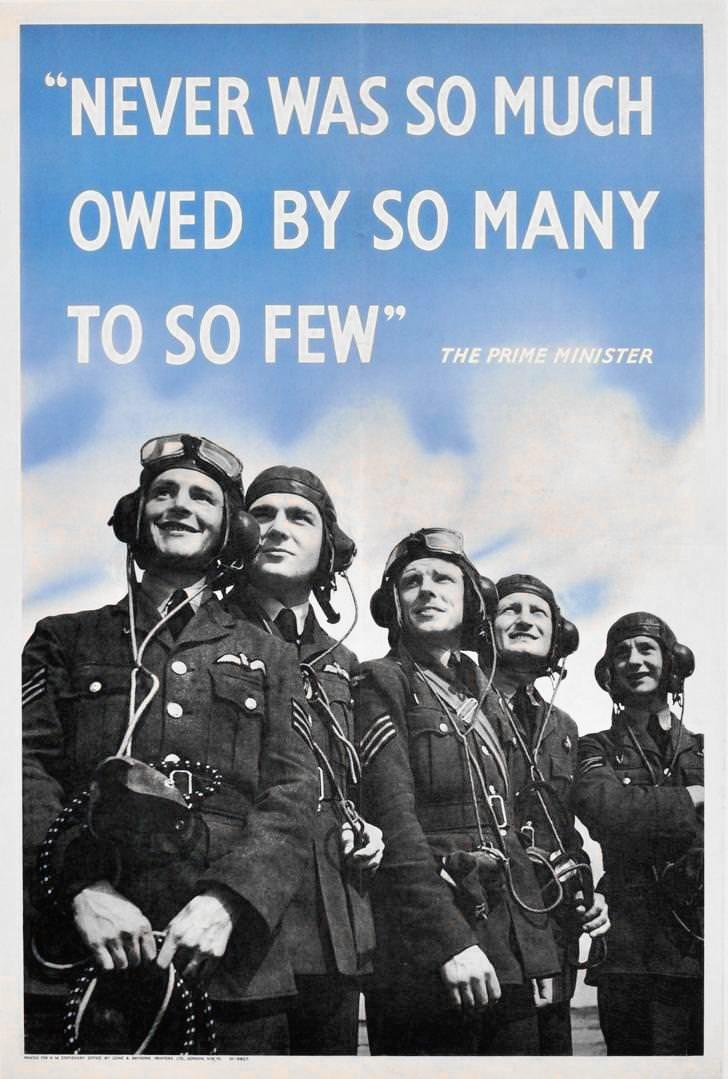
Sure, the British are not alone in their obfuscation. It is no excuse that the crackpot father/son-in-law duet in the White House are lighting Americans the way to dusty death with untested drugs, or that their acolytes are also drawing on dubious historical parallels to rally support. Governor Cuomo may refer to a mythical “Battle of the Mountaintop” – whereat New Yorkers will presumably find their “plateau” – but it was somewhat less convincing to have the bemedaled US Surgeon General compare the coronavirus attack “moment” to that of Pearl Harbour (2,403 Americans dead) or 9/11 (2,977 victims).
If America’s death toll could, as we are told by the White House, run to between 100,000 and 250,000, then surely a more appropriate comparison would be Hiroshima (between 90,000 and 146,000 dead) although I can see why this particular event might not commend itself to the Surgeon General. Ergo the March 1945 fire-bombing of Tokyo (79,466 bodies recovered).
But leave aside the wartime phantoms for a moment. Look yet again at the language. The Cabinet Office, for example, has just tried to explain why it has lost interest in the BlueSky device for ventilators. It was no longer “supporting the production” of these machines, it said, “following a reassessment of the product’s viability in light of the ever developing picture around what is needed to most effectively treat Covid-19.” Notice what’s missing. When did this reassessment take place? When did the “developing” picture of what’s needed first get noticed?
And then read this afterthought from the Cabinet Office. “We are continuing to work at unprecedented speed with a number of other manufacturers to scale up UK production of ventilators.” Putting aside the cliché of “scaling up” – more sexy, I suppose, than a good old “increase” – it’s the word “unprecedented” that gives the game away. For the only precedent which can precede “unprecedented speed” was presumably the speed (or lack thereof) in demanding the earlier and now abandoned model of ventilator.
I suppose junior civil servants in the Second World War did produce bumf like this, but no government then would have dreamed of uttering such inanities. Indeed, what comes across these days is how genuine and immensely eloquent – almost Shakespearian in their pity – are the words of doctors and nurses and paramedics when they are faced with microphones and cameras.
At first, as we know, the NHS threatened these fine people with their jobs if they were found – horror of horrors – to have been speaking the truth to the people through the media. Fancy that. Our saviours would have been stopped from saving us if they talked too much. This was a warning wisely abandoned. If it had carried on, Britons might have needed more protection from their government than from Corvid-19.
Because a few minutes listening to these men and women, doctors and nurses and ambulance crews and nursing home staff – stretcher bearers under fire as much as frontline troops, I would have thought – is enough to make anyone understand what the “war” against coronavirus is really about. This is not the Battle of Britain or the Second World War, nor Pearl Harbour nor 9/11. It is about humanity and compassion amid death, something which the Brexiteers and ideologues in Downing Street do not – and cannot – understand. They, after all, are the men and women who left the NHS pilots without sufficient quantities of bullet-proof glass.
Join our commenting forum
Join thought-provoking conversations, follow other Independent readers and see their replies
Comments